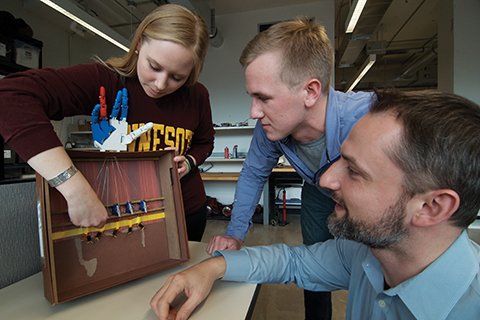Mechanical engineering
Mechanical engineering encompasses energy, transportation, bioengineering, environmental engineering, medical device design, heating and refrigeration, fluid power and fluid mechanics, manufacturing, and nanofabrication. A mechanical engineering degree is versatile, and mechanical engineers often work on team projects involving aeronautics, biomedicine, chemistry, civil engineering, and electronics.
Careers
- Automotive engineer
- Biomedical engineer
- Controls engineer
- Combustion and fluid power engineer
- Energy systems engineer
- Environmental engineer
- Manufacturing engineer
- Packaging engineer
- Product or process design engineer
- Thermal management systems engineer
What will I study?
Your first year provides a foundation of mathematics, physics, and chemistry. Your second and third years are devoted to these core topics:
- Statics and dynamics
- Solid mechanics
- Design and manufacturing
- Thermodynamics, fluid mechanics, and heat transfer
In your last year, you will focus on a specific area through technical electives, specialized labs with modern computer-based tools, and a capstone design project. An optional co-op technical program is available, in addition to an integrated five-year program for a combined bachelor’s and master’s degree in mechanical engineering.
The University of Minnesota’s Bachelor of Mechanical Engineering is accredited by the Engineering Accreditation Commission of ABET.

